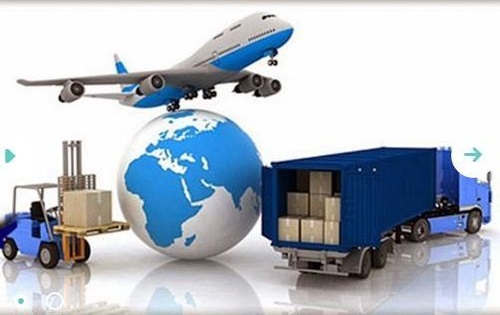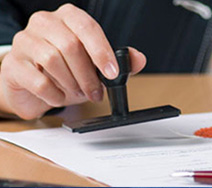
Sea Freight Solutions: An Ultimate Guide on Sea Freight Shipping Services
Sea freight refers to the transportation of products and goods by shipping vessels from one country to another. It is a commonly used method in international trade, as it is an efficient and cost-effective way to transport loads of goods over long distances. It is also one of the most eco-friendly choices for businesses to move large amounts of goods between nations.
Ryan Worldwide offers reliable, cost-effective, and sustainable shipping options to its customers. In this blog, we discuss all about the sea freight solutions you need to know to optimize your domestic and international trade through the ocean.
Also read: Import and Export Services in UAE
Cost-effective Sea Freight Solutions for UAE Businesses
Key Benefits of Ocean Freight Services
- Sea freight solutions have lower costs per unit compared to air freight.
- The cost per unit of sea freight decreases with the increasing volume of goods shipped.
- Ocean freight services are particularly suited for transporting heavy and bulky items.
- Sea freight pricing depends on container type and not on weight.
- Containerization allows for efficient loading, unloading, and transportation of goods.
- Large vessels allow the shipping of tons of containers in a single voyage.
- Sea freight benefits from a global network of ports and shipping routes.
- Sea freight is comprehensive and accommodates different cargo types
- Shipping container services result in lower emissions for each unit of cargo.
- Ocean vessels are energy-efficient as they transport large volumes of goods.
Separate Types of Shipping Container Services: FCL and LCL Shipping
FCL and LCL shipping refer to container load sizes used in domestic and international sea freight shipping. FCL stands for full container load, while LCL is the short form for less-than-container load.
- Full Container Load (FCL) Shipping—When a single trader uses an entire shipping container to ship their freight, it is called FCL shipping. This type of container load size reduces cargo handling time, increases security, and permits faster transmission and exclusive usage.
- Less-than-Container Load (LCL) Shipping—As a cost-saving option for shipments smaller in quantity, a trader pays only for the space their goods occupy in a shared container.
Cost-effective Sea Freight Solutions for UAE Businesses: How to Choose the Right Freight Forwarding Partner in the UAE?
Here are a few things to pay attention to while choosing a suitable freight-forwarding partner in the UAE for your business.
Choose freight-forwarding companies in the UAE with:
- Positive reviews and a proven track record.
- Experience in shipping your types of goods in the UAE
- Strong network and partnerships with shipping lines, carriers, and customs brokers.
- Good knowledge of customs regulations and procedures for smooth clearance in the UAE.
- Wide range of services like FCL and LCL shipping
- Technology integration for data management, communication, and efficient tracking
- Adequate cargo insurance
- Clear communication and responsive customer service
- Transparency in pricing and fees
Ryan Worldwide is one of the best freight-forwarding companies in the UAE. The following are a few factors that make Ryan Worldwide a big name among cost-effective sea freight solutions for UAE businesses:
- End-to-end solutions
- Customs clearance expertise
- Documentation and ensuring compliance
- Tailored logistics strategies
- Diverse services
- Strong networking capabilities
- Dedicated freight forwarding division for the region
- Moving services
Cost-effective Sea Freight Solutions for UAE Businesses: Understanding Sea Freight Costs & Factors That Influence Pricing
The three main components of sea freight shipping costs include:
- Freight Rates: The basic cost for moving goods to the destination port from the origin port
- Port Charges: Terminal handling charges (THC) and other fees associated with handling cargo at the ports.
- Customs Fees: Customs authorities levy these taxes and duties in the destination country.
Other factors that could potentially affect sea freight costs include:
- Fuel Surcharges
- Currency Adjustment Factor (CAF)
- Demurrage and Detention Charges
- Insurance Costs
- Documentation Fees
- Ancillary Charges
You can reduce sea freight expenses by:
- Carefully arranging and optimizing shipments
- Negotiating profitable rates from ocean freight carriers
- Working with reputable freight forwarders.
- Selecting efficient container utilization and packaging.
- Deploying visibility solutions across the supply chain
- Complying with customs regulations with proper documentation
- Evaluating and benchmarking your performance in sea freight shipping regular
Cost-Effective Sea Freight Solutions for UAE Businesses
The following are some of the best methods to save costs on international shipping:
- Maintain an accurate cargo weight.
- Practice the best packaging process with custom packaging solutions and lightweight packing materials.
- Discover different options for carriers.
- Shipment consolidation to make a big load of smaller shipments
- Choose shipping routes that help save costs.
Ryan Worldwide offers efficient and affordable sea freight options with:
- Global carrier relationships and networks
- Optimized consolidation and route planning
- Data analytics and technology
- Customized solutions for shipping needs
- Efficient customs clearance
- Focus on cost optimization.
- Operational efficiency for import and export via sea freight
- Data-driven insights for international sea freight shipping
Customs Clearance in Dubai: Hassle-Free Sea Freight Solutions by Ryan Worldwide
Customs clearance is crucial for import and export via sea freight. It ensures that your shipments cross borders safely, legally, and efficiently. Customs clearance avoids penalties or delays of import by ensuring that applicable taxes are paid and regulations are complied with.
Ryan Worldwide streamlines customs clearance in Dubai with its comprehensive services, such as import/export documentation, customs inspection, and special approvals. They also have an expert team to handle special approvals from controlling authorities. Other services by Ryan Worldwide include:
- Food Import and Re-export
- Warehousing Operations
- Logistics and Freight Forwarding
- Importer of Records Services
- Exhibition/Expo Import Clearance
- Pet Relocation
You would require the following key documents for import/export clearance:
- Commercial invoice
- Bill of lading/airway bill
- Packing list
- Certificate of origin
- Permits and licenses based on your goods and destination
Also read: Documentation for International Exports From the UAE: Complete Guide
Why Choose Ryan Worldwide for UAE Shipping and Logistics Solutions for Your Business Needs?
With almost two decades of expertise, Ryan Worldwide aims to ensure smooth and cost-effective sea freight solutions for UAE businesses. Our remarkable features include:
- Comprehensive services, including customs clearance, distribution, and freight forwarding
- Expertise in customs clearance
- Global network for managing shipments
- Partnership with global supply chain solutions for safe cargo transportation
- Clear communication around the clock
Closing Thoughts
A sea freight solutions provider focusing on customs clearance can ensure your international trade is efficient and legal. They can help you comply with regulations, pay taxes and duties, and prevent penalties and delays by transporting your goods smoothly.
When you partner with Ryan Worldwide, we offer you the best working relationships beyond our wide range of services. For expert sea freight solutions and customs clearance in Dubai, contact us at:
- Phone: +9714 2528468 (or) +971559020985
- Email ID: info@ryan-worldwide.com
Also read: VAT Customs Duty in UAE: What You Need to Know in 2025





Recent Comments